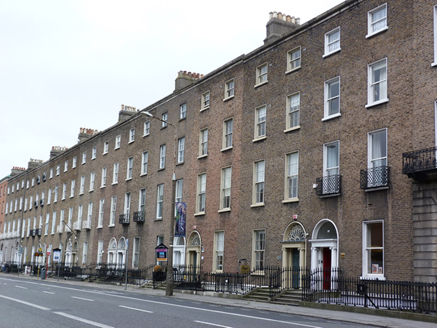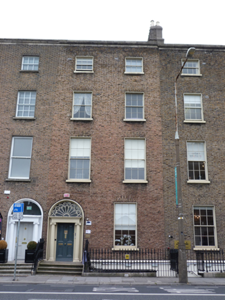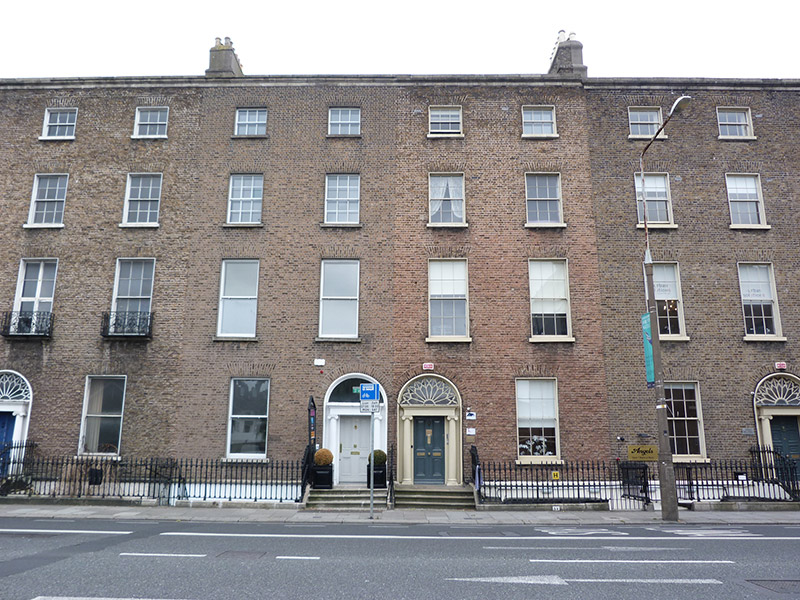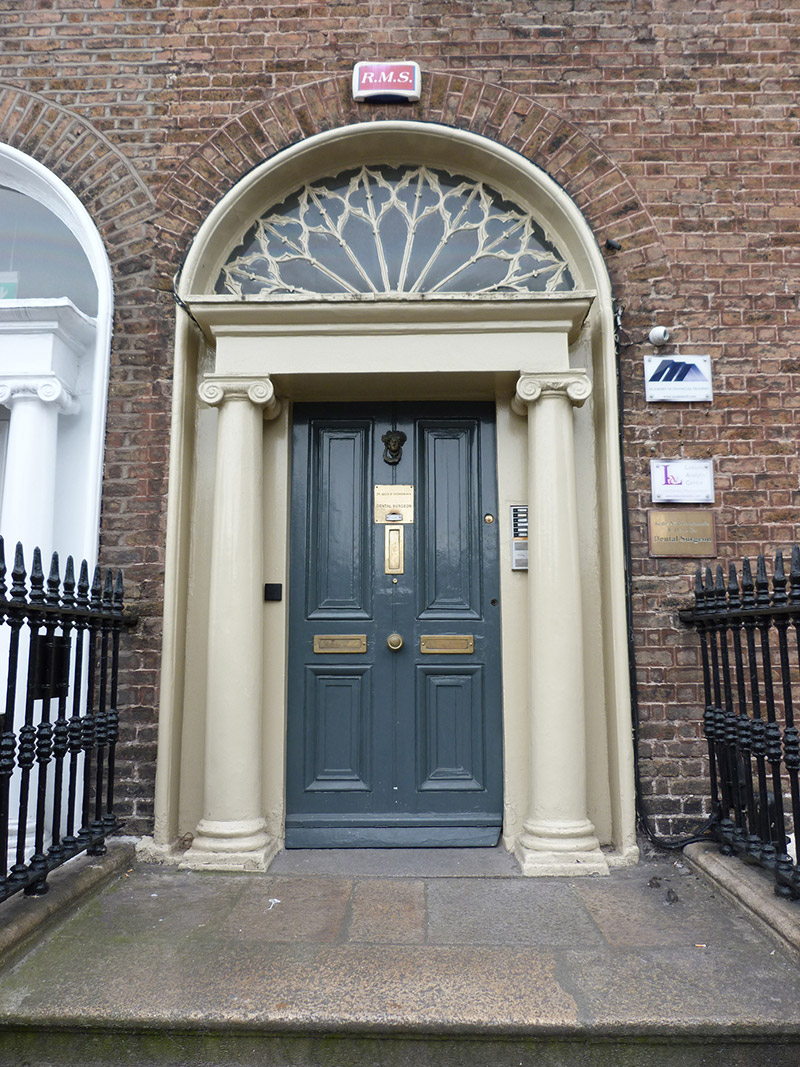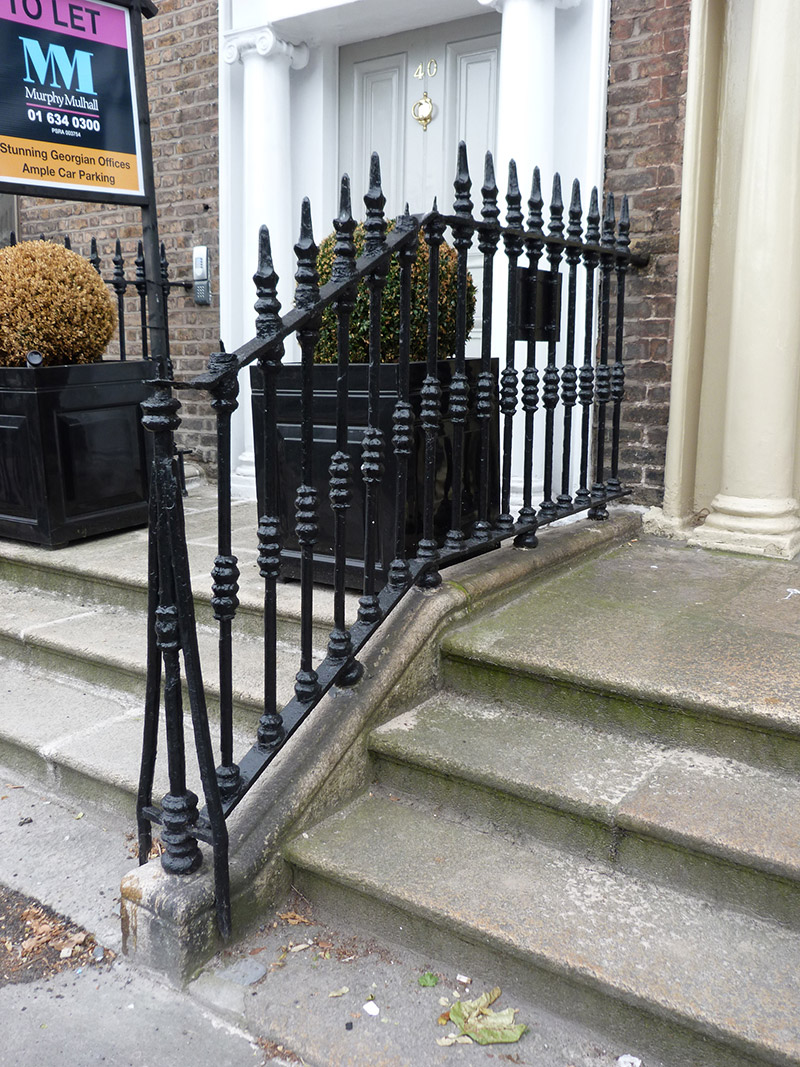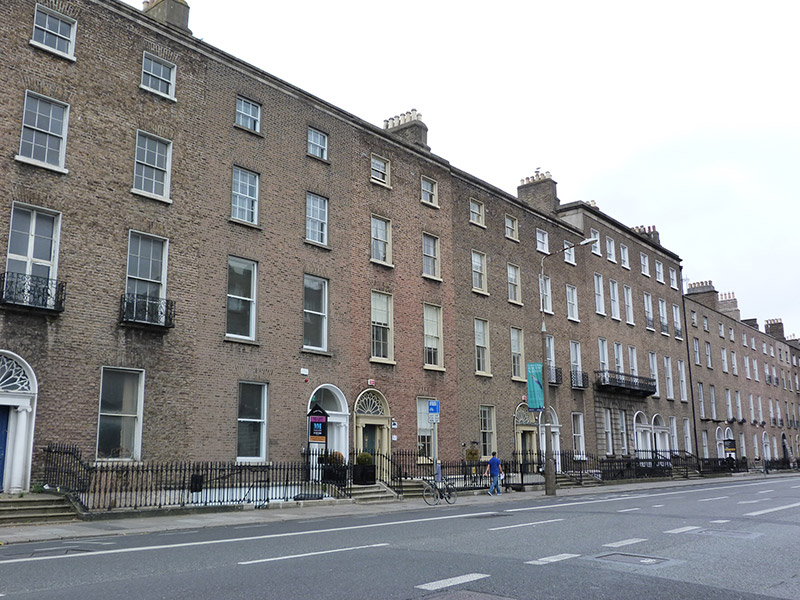Survey Data
Reg No
50110496
Rating
Regional
Categories of Special Interest
Architectural, Artistic
Original Use
House
In Use As
Office
Date
1820 - 1840
Coordinates
316341, 232847
Date Recorded
23/06/2017
Date Updated
--/--/--
Description
Terraced two-bay four-storey former house over basement, built c. 1830, as pair with No. 40, having four-storey return to rear (west) elevation. Now partly in use as surgery. M-profile pitched roof, hipped to south, hidden behind granite parapet, having carved granite cornice. Brick chimneystacks with clay pots. Brown brick, laid in Flemish bond, to walls to front (east) elevation, cut masonry plinth course over rendered walls to basement. Rendered walls to rear. Square-headed window openings, having raised render reveals and granite sills. Mixed three-over-three pane and six-over-six pane timber sliding sash and replacement windows. Wyatt windows to rear. Round-headed door opening with moulded render surround and carved stone doorcase comprising Ionic columns and entablature, leaded fanlight and timber panelled door. Nosed granite steps and platform. Cast-iron railings having spear-head finials and decorative collars set on carved granite plinth wall.
Appraisal
Part of a uniform terrace, this structure maintains the parapet height and fenestration alignment of neighbouring buildings, making a pleasing contribution to the streetscape. It is articulated by cut granite detailing and enhanced by the retention of salient features, notably an elegant Greek Revival doorcase. Cast-ironwork lends artistic interest to the restrained facade. The composition contributes to the air of grandeur projected by the terrace as a whole. The road leading from St. Stephen's Green to Donnybrook was originally called Suesey Street. It was renamed Leeson Street in 1728 to commemorate the Leeson brewing family, who were responsible for significant development in the area. Some Early Georgian houses remain but construction predominantly dates from the late eighteenth to mid-nineteenth centuries.
